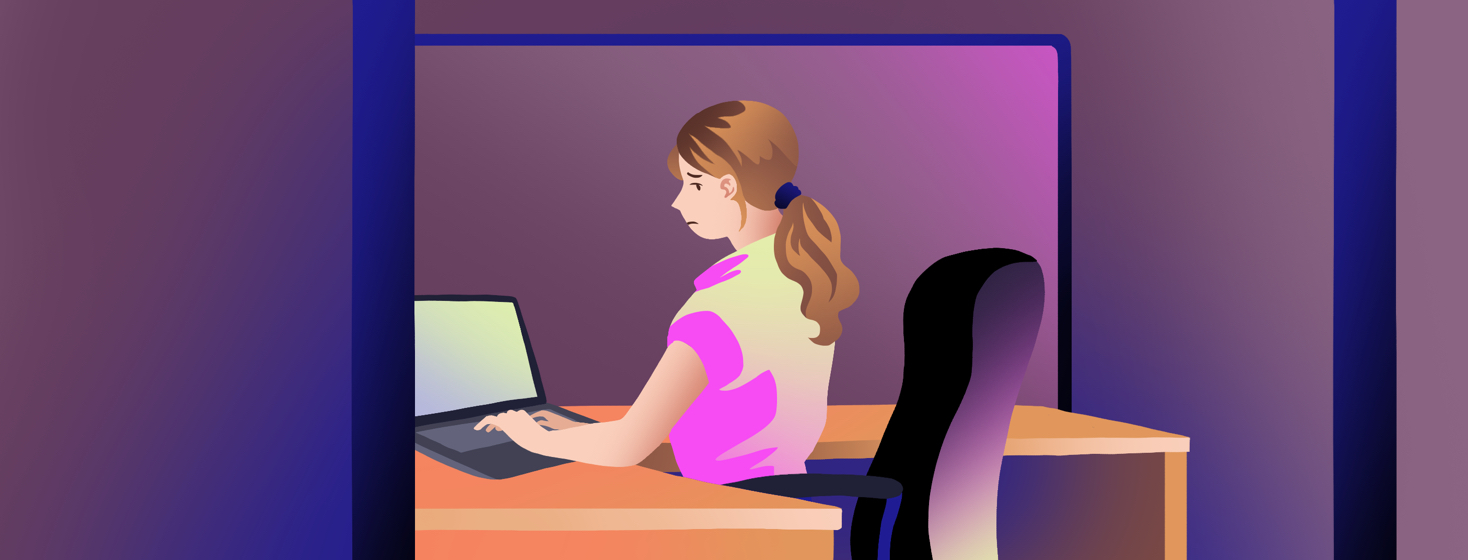Should You Hide Your Disease at Work?
During my first five years living with lupus, I used to wake up an hour early before work. Even though my fatigue was at its most severe in the mornings, I’d spend time carefully doing my makeup. Then I’d choose an outfit, often pairing it with high heels even when it felt difficult to walk. No one at work knew I was sick, and I was afraid of what might happen to my career if they found out.
Maintaining a career or even holding down a part-time job can be difficult, if not impossible when you have lupus. Fatigue, pain, or sensitivity to the sun can make it hard to even get out of bed in the morning. But another challenge that lupus patients face in the workplace is their own fear their colleagues or bosses might find out about their disease.
Lupus accommodations at work
Your employer is required by law to provide reasonable accommodations for disabled employees. However many lupus patients, like me, never tell their bosses or coworkers about their disease.
Lupus is a confusing disease with varied and hard-to-understand symptoms. Like most people with lupus, I’ve often encountered people who don’t understand my need for accommodations or even that I have a real disease to begin with.
Featured Forum
View all responsesHiding my lupus
Because I loved my career and believed hiding my disease was the only way to be successful, I spent years “in the closet” about my disease. I covered the dark circles under my eyes with makeup, gave vague answers when colleagues asked me how my day was going during weeks when I was in a flare, and kept a bottle of steroids hidden in the bottom of my purse.
I didn’t want anyone to know that the road swam in front of my eyes because I was exhausted on my way to work. I didn’t want anyone to know that I sometimes threw up in my car on the way home. I was terrified that if the people I worked with knew how sick I was, they might think I was unable to do my job.
Discrimination
My fear of being discriminated against or excluded at work because of my disease wasn’t unfounded. Discrimination often isn’t obvious or straight-forward. It isn’t always your boss refusing to provide reasonable accommodations or simply treating you badly because you have lupus. Discrimination sometimes happens when well-meaning supervisors or coworkers decide without consulting you what parts of your job you are or are not physically able to do.
In my work as a violin teacher, I’m fortunate to have rarely experienced any discrimination, whether overt or subtle. However, that doesn’t mean I’ve never experienced it. I was once hired by a school to judge a competition. I asked if it would be possible to start the competition at a slightly later time due to medical reasons, but also specified that if changing the time wasn’t a possibility, I could come at the original time. The coordinator emailed me back to tell me that I would no longer be invited to judge the event, proudly letting me know he was thinking of my health. He seemed to think he was doing me a favor. I lost $300 of income.
Deciding to open up
I eventually “came out” about my disease when I had a severe flare that meant I had to stop working for nearly a year. While I hope to never have such a severe flare ever again, I’ve reached a point in my career and mental health in which I prefer being open and honest about my health issues. Many of my colleagues are also my friends.
Concealing my disease had felt like trying to hide an elephant under an area rug. It was impractical, ineffective, and diverted my mental energy away from the work that I should be doing. To my surprise, the vast majority of my colleagues were kind, understanding, and didn’t treat me differently.
Coming out of the autoimmune closet
Being open at work about having lupus isn’t the right choice for everyone. There are a lot of factors to consider before coming out of the autoimmune closet. What was best for me might not be best for you. I am fortunate that my choice to come out of the closet was the right one for me. If this is an issue you’re facing, I hope you are able to find peace and clarity, whichever choice you make.

Join the conversation